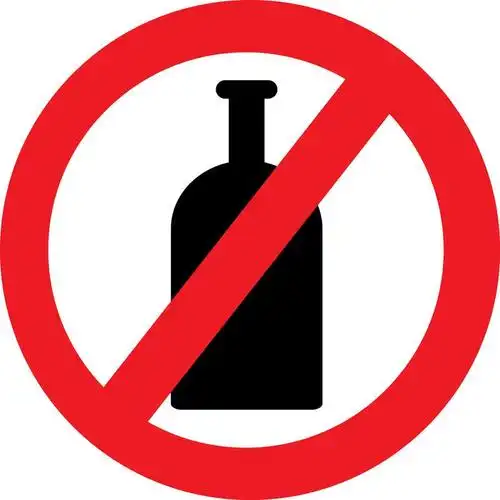When we think about what ends marriages, infidelity, financial troubles, or growing apart often come to mind. Yet there's a more insidious threat that destroys relationships gradually, often unnoticed until it's too late: alcohol abuse. Unlike dramatic single events that clearly signal trouble, alcohol's damage accumulates slowly, creating fissures in the foundation of marriage that eventually become irreparable chasms.
The Gradual Erosion of Trust
Trust forms the bedrock of any successful marriage, and alcohol systematically undermines this crucial element. In the early stages, it might be minor disappointments—showing up late to dinner because of "one more drink," forgetting promises made, or behaving slightly inappropriately at social gatherings. These incidents seem manageable individually, but collectively they create a pattern of unreliability.
As consumption increases, so does the unpredictability. The sober partner never knows which version of their spouse will come home—the loving companion or the belligerent stranger. This constant uncertainty creates hypervigilance, where the non-drinking partner is always monitoring, anticipating, and managing the drinker's behavior. The mental exhaustion from this constant surveillance replaces what was once mutual support with parental supervision, fundamentally altering the relationship dynamic.
Emotional Disconnection and Loneliness

Alcohol creates an invisible barrier between partners long before either recognizes it. The drinker increasingly turns to alcohol rather than their spouse for comfort, celebration, or stress relief. This emotional transfer represents one of the most painful aspects of alcoholic marriages—the replacement of human connection with chemical dependency.
Meanwhile, the sober partner experiences profound loneliness within the marriage. They sleep alone, attend social functions alone, and shoulder household responsibilities alone. Even when physically together, the drinker is often emotionally absent, mentally foggy, or passed out. This isolation becomes particularly painful during important life events—children's milestones, family crises, or personal achievements—when the drinker's absence or inappropriate behavior leaves lasting wounds.
Financial Strain and Neglected Responsibilities
The economic impact of alcoholism extends far beyond the direct cost of alcohol itself. Lost productivity at work, missed career opportunities, job loss, and medical expenses create significant financial pressure. Many alcoholics prioritize drinking over financial obligations, hiding purchases or draining family resources to support their habit.
This financial stress often forces the sober partner into a controlling role, monitoring spending and managing finances to prevent disaster. The resulting parent-child dynamic further erodes romantic connection and mutual respect. Additionally, as drinking consumes more time and energy, household responsibilities shift disproportionately to the non-drinking partner, creating resentment and exhaustion.
The Transformation of Identity and Intimacy
Long-term alcohol abuse changes both partners in profound ways. The drinker's personality gradually alters—their interests narrow to drinking-related activities, their emotional range flattens, and their priorities shift. The person their spouse married seems to disappear, replaced by someone consumed by their addiction.
Physical intimacy often suffers dramatically. Alcohol impairs sexual function and desire, while the emotional disconnection makes genuine intimacy nearly impossible. The sober partner may feel used when physical contact only occurs when the drinker is intoxicated, or repulsed by the smell and behavior associated with drinking.
The Children's Impact and Diverging Priorities
When children enter the picture, the stakes heighten considerably. The non-drinking partner often assumes primary parenting responsibilities while simultaneously protecting children from the drinker's behavior. This protective role creates impossible loyalty conflicts—wanting to preserve the family unit while shielding children from emotional damage.
Parenting styles diverge dramatically, with the sober parent enforcing rules and stability while the drinker's inconsistent behavior creates confusion and insecurity. Children learn to navigate around the drinking parent's moods, developing anxiety and relationship templates that may affect their own future partnerships.
The Broken Promise of Recovery
Many marriages survive initial drinking problems through hope and promised change. The cycle of quitting, relapsing, and recommitting to sobriety creates its own special hell for partners. Each broken promise chips away at hope until the non-drinking partner can no longer believe in change.
The emotional rollercoaster of recovery attempts—initial optimism followed by disappointment—often proves more damaging than the steady state of active addiction. The sober partner must constantly recalibrate expectations and emotions, creating psychological whiplash that eventually leads to emotional shutdown as a protective measure.
Why Many Ultimately Choose Divorce
The decision to leave rarely comes from a single dramatic event but from the accumulated weight of thousands of disappointments, broken promises, and lonely nights. The sober partner eventually realizes they've been mourning their marriage for years while still technically in it.
What makes alcohol-related divorce particularly tragic is that it often comes after the drinker achieves sobriety. Partners discover that removing alcohol doesn't automatically repair years of damage. The trust remains broken, the roles are firmly established, and the emotional connection has been starved for too long. Sometimes, the person who emerges in sobriety is essentially a stranger after years of alcohol-mediated interactions.
The Path Forward
Not all marriages affected by alcoholism end in divorce. Those that survive typically share certain elements: the drinking partner takes full responsibility for their recovery without making the spouse manage it, both partners commit to rebuilding trust through consistent actions over time, and they seek professional help to address the deep patterns established during active addiction.
Rebuilding requires acknowledging that recovery means more than just stopping drinking—it means recreating the relationship from its damaged foundation. This process often proves more challenging than achieving sobriety itself, requiring humility, patience, and professional guidance.
The story of alcohol's impact on marriage serves as a powerful reminder that the most dangerous threats to relationships aren't always the dramatic ones, but the slow, persistent erosion of what made the partnership meaningful in the first place. Recognizing these patterns early and addressing them honestly offers the best chance of preserving both individual wellbeing and the marriage itself.




发表评论